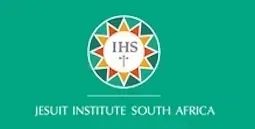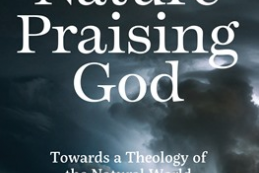Dostoevsky, Christianity, the natural environment, and animal ethics

Source: Jesuit Institute, South Africa
Daniel Pretorius, from the Jesuit Institute South Africa, writes: Fyodor Dostoevsky's great novel, The Brothers Karamazov, published in 1880, explores timeless themes such as the human condition, morality, religion, faith, and doubt.
Upon re-reading The Brothers Karamazov recently, I was struck by another recurring theme, perhaps an unlikely one for a novel written 145 years ago: ecology and the relationship between human beings and other animals. I will quote a few extracts, and let the words of Dostoevsky's characters speak for themselves:
'Each stalk of grass, each little insect, each ant and golden bee, they all to a bewildering extent know the paths they must follow; having no intellect, they testify to God's mystery, incessantly accomplishing it in themselves. … "Look upon the horse, that great animal that stands close to man, or at the ox that nourishes him and works for him, thoughtful and with hanging head, look upon their countenances: what meekness, what devotion to man, who often flogs them without pity, what lack of malice, what trust and what beauty there is in their countenances. It is most moving to realise that they bear no sin, for all things and all creatures universally, all except for man, are without sin, and Christ is with them first, before he is with us." … When people understand this idea, the Kingdom of Heaven will begin for them, not in a dream but in actual fact.'
'Love the whole of God's creation … . Each leaf, each sunbeam of God, love it. Love the animals, love the plants, love every object. If you love each object, you will also perceive the mystery of God that is in things. … Love the animals: God has given them the basis of thought and an untroubled joy. So do not disturb it, do not torment them, do not take away their joy, do not put yourself in opposition to God's intent. Man, exalt not yourself above the animals: they are sinless, and you in your grandeur fester the earth with your appearance on it and leave your festering footprints after you - alas, almost every one of us!'
'It isn't good to go tormenting any other creatures, for all brute creatures are a part of God's creation, whether it be the horse' (or some other creature).
'All is like an ocean, all flows and is contiguous, and if you touch it in one place it will reverberate at the other end of the world … All animals around you would feel easier if you yourself were inwardly better-apportioned than you are now, even if they felt so only by a single drop. All is like an ocean, I say to you.'
Dostoevsky was ahead of his time in recognising the interconnected nature of all elements of God's creation, and that harm to any one element inevitably has a detrimental impact on creation in its entirety. It is a truth reminiscent of that captured by John Donne in his poem 'For Whom the Bell Tolls' (1624): 'No man is an island / Entire of itself. / Each is a piece of the continent / A part of the main. / If a clod be washed away by the sea / Europe is the less. / As well as if a promontory were.'
Dostoevsky was also correct in saying that God has given animals the basis of thought. We now know, in a way that could scarcely have been imagined in the 1880s, that many animal species can make sense of their environment and their experiences, and adjust their behaviour accordingly. Although they may not have 'intellect' in quite the way that human beings do, scientific progress since Dostoevsky's days has taught us that most animals have cognitive abilities that we are only beginning to comprehend. Most animals are sentient - meaning they have the capacity to experience positive and negative feelings such as joy, pleasure, excitement, fear, hunger, pain, anxiety and distress, and to do so consciously.
This being the case, Dostoevsky was quite correct in emphasising that we should not torment animals. They suffer, physically and emotionally, when we maltreat them. We should reflect on how we torment animals, including the livestock that we slaughter and eat - they are as much God's creatures as we are. If we treat animals inhumanely, we diminish our own humanity.
To quote John Donne again: 'Send not to know for whom the bell tolls - it tolls for thee.'
Follow The Jesuit Institute on Twitter @JesuitInstitute


















